Why is the German government still defending the Nord Stream 2 pipeline? Constanze Stelzenmüller explains, in a piece originally published in the Financial Times.
The seizure by Russian forces of three Ukrainian vessels and their crews in the Kerch Strait at the entrance to the Sea of Azov has turned a harsh spotlight on the Nord Stream 2 gas pipeline project, which embodies the contradictions of German foreign policy at a time of rising geopolitical tension.
The pipeline begins under the Baltic Sea, comes onshore in Germany, bypassing Ukraine and Poland, and ends at the Austrian border. It is being built by the Kremlin-backed gas group Gazprom, and co-financed by a consortium of German, French, Anglo-Dutch, and Austrian oil and gas companies. But politically it is fully owned by Berlin. As such, it is a test of whether Germany is willing and able to live up to its claim to be a responsible leader in Europe.
Nord Stream 2 has been contentious since its inception in 2015 because it will deprive Ukraine of most of the estimated $2bn it earns annually in gas transit fees. It is opposed by the United States, while most of Eastern Europe is also against it. Concern has also been expressed by France, the U.K., Sweden, and Canada, and last month lawmakers in the German and European parliaments signed a letter to Angela Merkel asking her to stop the pipeline.
Over the past week, all three candidates to replace Ms Merkel as leader of her Christian Democratic party spoke out against the pipeline, as have senior Social Democrats and Greens. The chancellor herself championed Ukraine’s right to seek alignment with Europe a few days ago, while Heiko Maas, her foreign minister, has taken pains to distance himself from the SPD’s tradition of equidistance between the west and Moscow. The Kremlin, meanwhile, roundly rejected Berlin’s attempt to mediate.
All of which invites the question: Why is the German government still defending Nord Stream 2?
Some of the criticism, it should be noted, is exaggerated or biased. U.S. President Donald Trump’s claim that Germany is “captive” because it imports 51 percent of its natural gas from Russia is simply wrong. It is holding together a fragile European sanctions consensus, and investing in Ukraine’s transformation. Also, the United States wants to sell liquefied natural gas to Europe, and Poland wants to be part of the deal.
Still, for Germany’s economics minister, Peter Altmaier, to insist that Nord Stream 2 can be made a “win-win” for all suggests that Berlin has yet to grasp just how profoundly it (and Europe) is affected by the global shift to great power competition. Its reluctance is understandable: No other country on the continent has gained as much stability, prosperity and power from global interdependence and the democratic transformation of its neighbors as Germany.
Berlin’s options for wriggling out of a trap of its own making are few.
Today, Russia and China are backing autocrats and weaponizing interdependence—in trade, infrastructure, and cyber space—against the West. Gazprom’s pipelines to Europe were recently decried as of doubtful commercial value by Russian experts. But geopolitically, they are hugely useful tools of control and coercion.
Berlin’s options for wriggling out of a trap of its own making are few. Reversing permits on national security grounds would mean incurring punitive damages. Ms. Merkel has noted that Germany could also play the coercion game by curbing gas inflows. But that would still leave Ukraine at the Kremlin’s mercy.
Two choices remain. Berlin could submit to U.S. sanctions. Or it could stop blocking the European Commission’s efforts to apply EU competition rules. Both are unpleasant. But consider the alternative. A finished Nord Stream 2, by circumventing Ukraine, removes Kiev’s most powerful deterrent against further aggression by Moscow. It fatally undermines European cohesion, and Germany’s credibility as a trustworthy neighbor. That would be a very high price to pay.
The Brookings Institution is committed to quality, independence, and impact.
We are supported by a diverse array of funders. In line with our values and policies, each Brookings publication represents the sole views of its author(s).
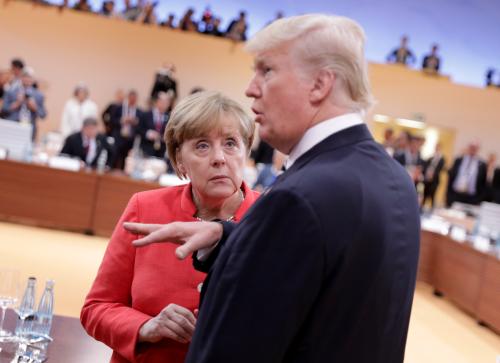
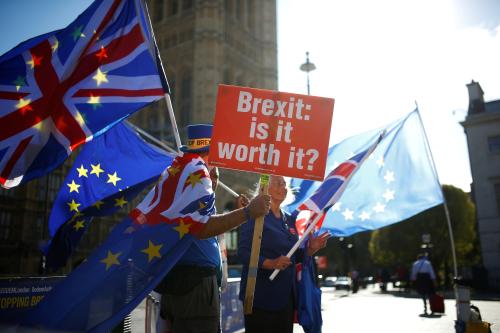

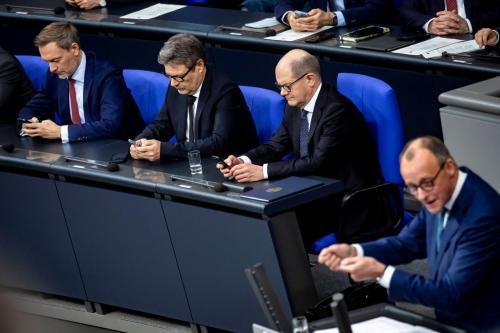
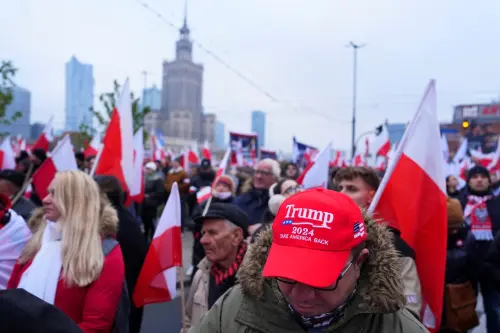
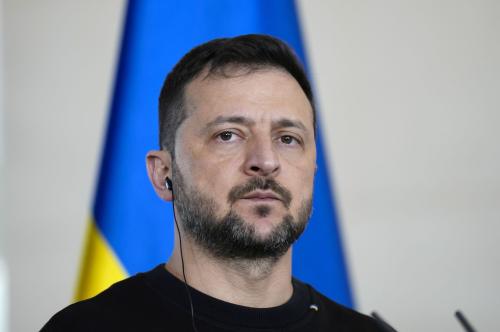
Commentary
Nord Stream 2 is a trap of Germany’s own making
December 5, 2018